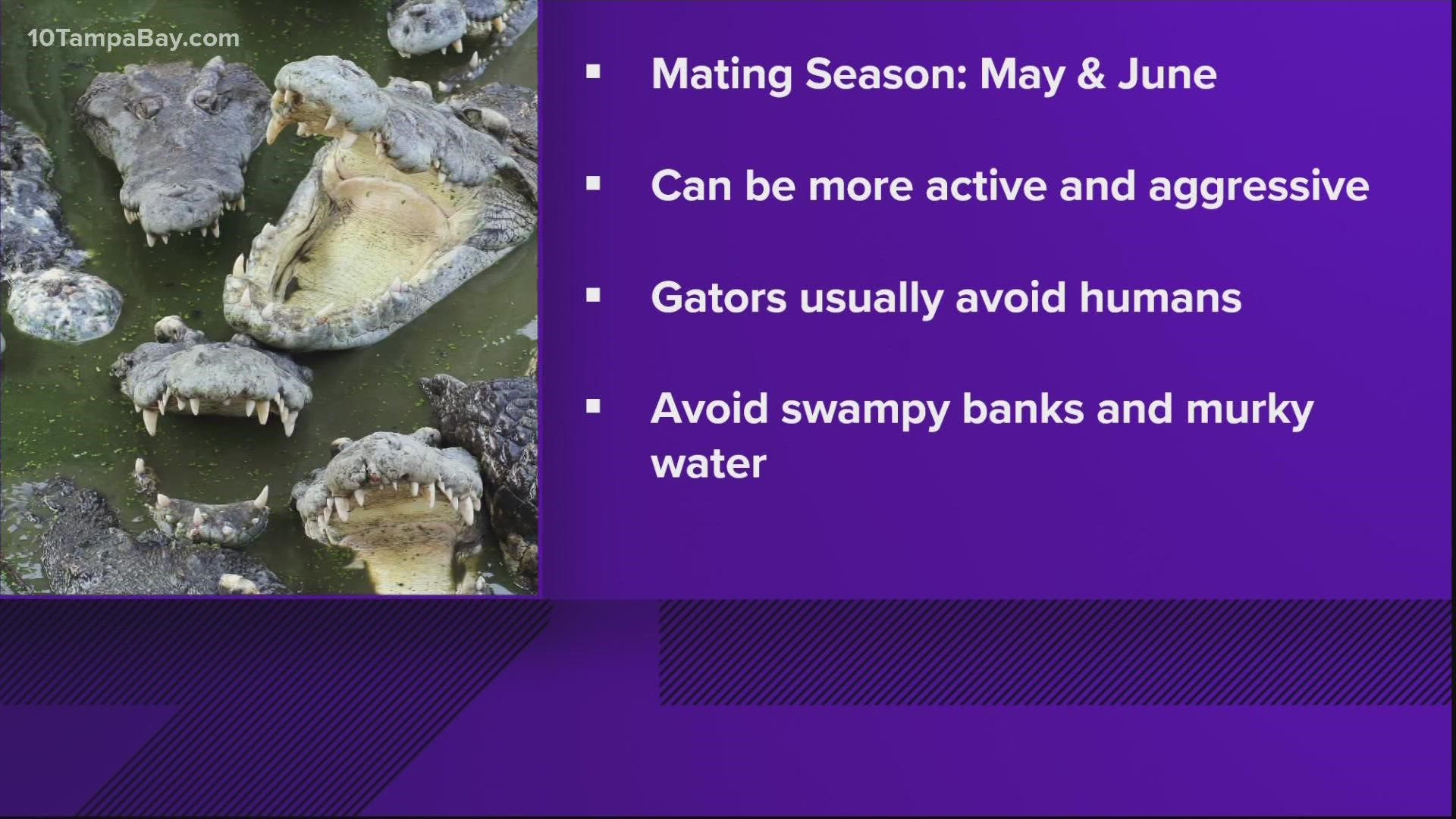FLORIDA, USA — Gator mating season is upon us which means if you see a gator out and about, keep your distance.
The Florida Fish and Wildlife Conservation Commission says gator courtship begins now, in early April before mating starts in May and June. Gators become sexually mature when they reach seven feet in length, FWC says. But, females can reach sexual maturity at six feet.
After mating, females will build a mound nest made out of soil, vegetation, or debris and then deposit their eggs.
On average a female will deposit 32-46 eggs in late June or early July.
Incubation for those eggs can take approximately 63-68 days. Hatching then occurs from mid-August through early September.
Alligators are aggressive during this time of year but don't worry. The reptiles rarely attack humans.
In general, alligators are not too keen on hanging out around people. They will actually try to avoid you entirely unless they’re hungry and have been fed by humans before.
Of course, though, there have been fatalities from alligator attacks in Florida — 16, to be exact, between 1999 and 2019. All these attacks vary in terms of the size of the gator and the size of the human. However, one of the most common factors is how these attacks happen. Most occur when humans swim in their environment.
If you’re out in the Florida wilderness, avoid those swampy banks where alligators like to hang out. You also may want to avoid swimming in murky water.
FWC says people should never feed alligators and keep their distance if they see one. People can also stay safe by only swimming in designated swimming areas and keeping pets away from the water and on a leash at all times when they're out.
The Key West Aquarium says if alligators are hungry and people are in the water, they may go for your ankles. And don’t bother trying to run because alligators can easily outrun people, hitting speeds up to 20-mph on land. But if you do run, don’t run in a straight line. If you run in a zig-zag formation, it’s harder for an alligator to turn and chase you.
If you spot an alligator where it shouldn't be, you can calls FWC's nuisance hotline.
The agency says a gator can be considered a nuisance it is at least four feet in length and people believe it can be a threat to people, pets or property. A trapper will be sent out to handle the situation.
You can reach FWC's nuisance hotline by calling the Alligator Hotline is 866-FWC-GATOR (866-392-4286).
10 Tampa Bay's Katie Jones contributed to this report.

